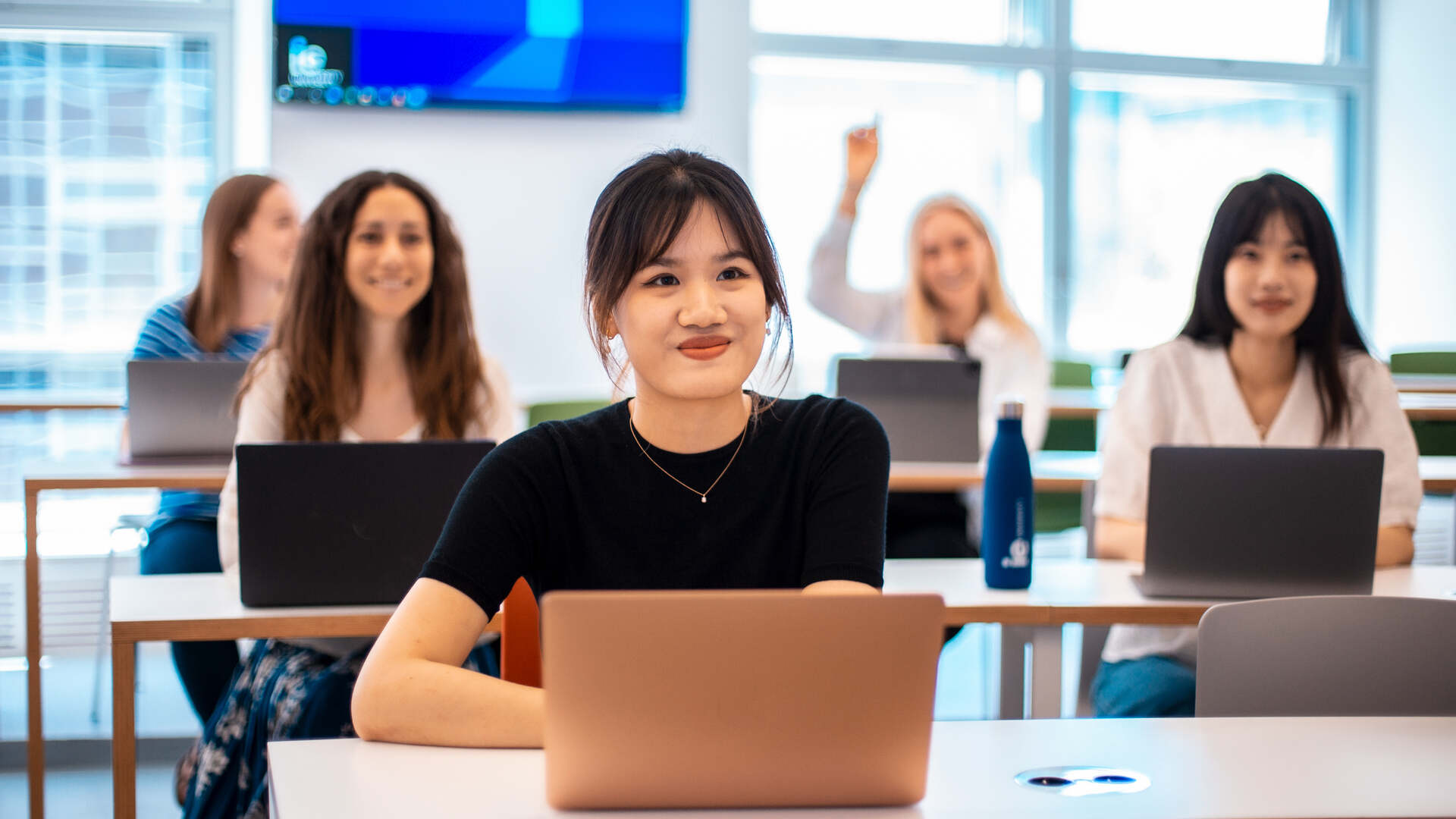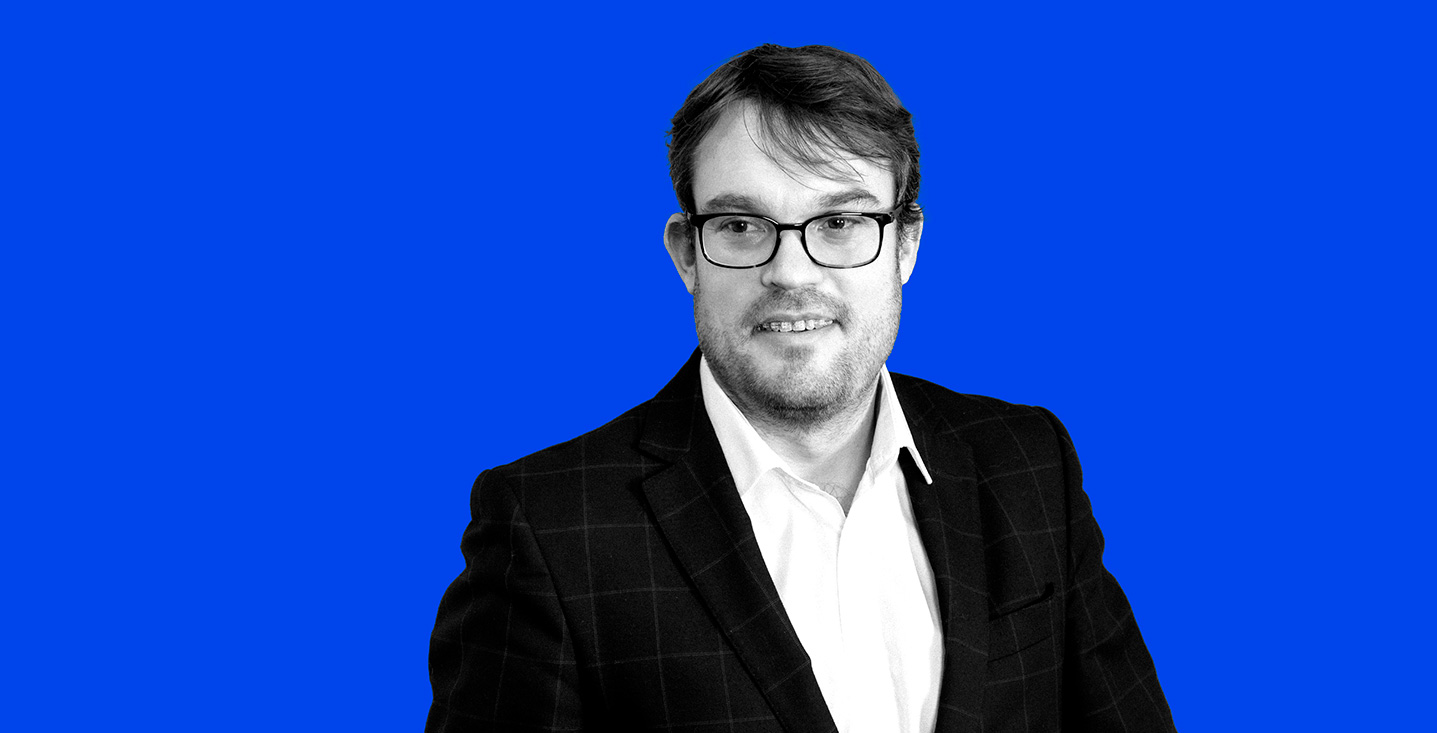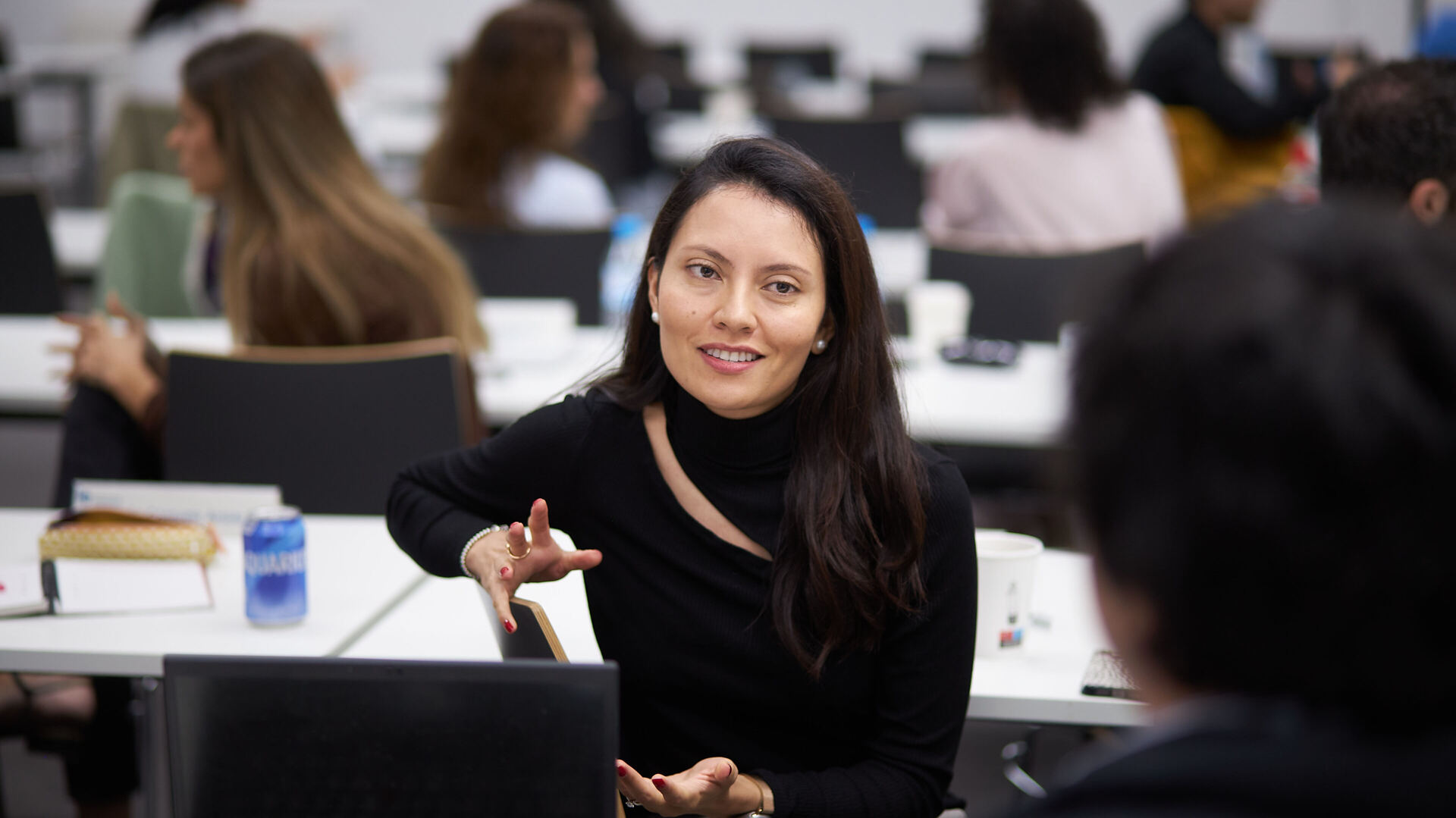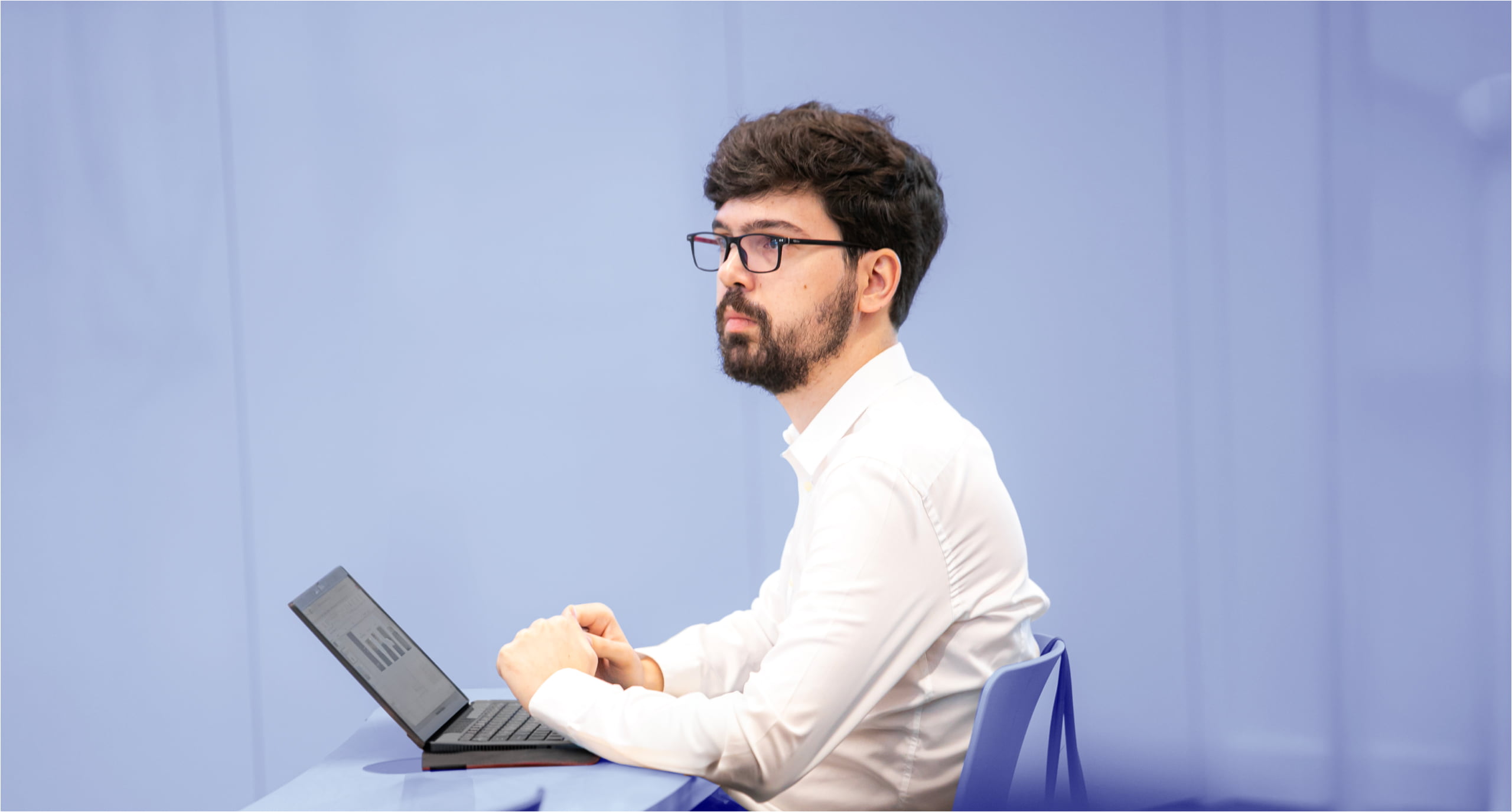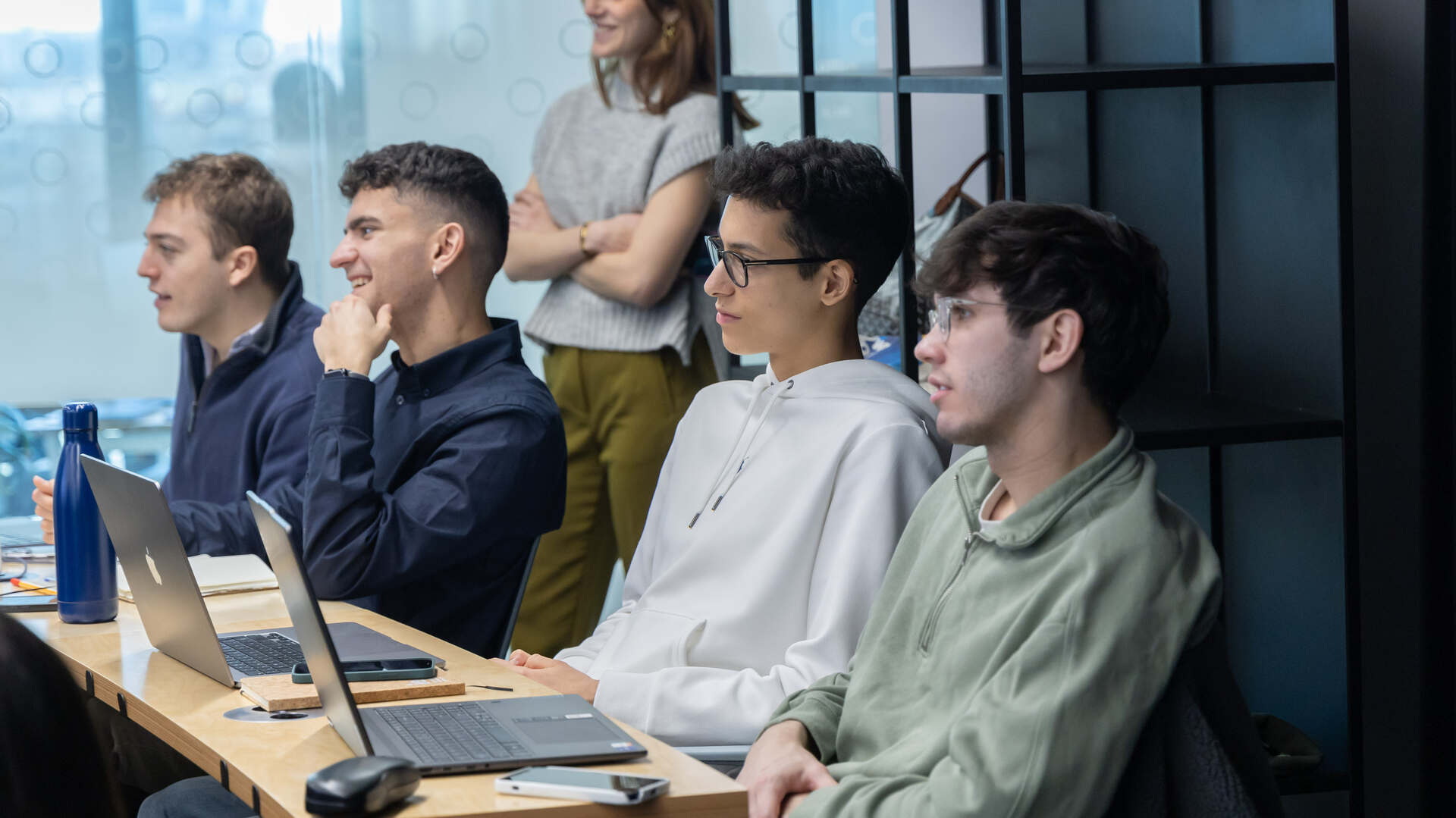03/01/2024
IE University recently celebrated its 50th anniversary, reflecting on where we’ve been and looking ahead to our future.
We’re at an exciting point in time. With technology becoming an ever-growing part of our lives, it’s time we learn how to use it wisely to improve education for the future. At IE University, we’re already innovating what it means to learn, with hands-on practical experiences and a faculty of experts. But we’re even more excited about the future and the impact we can make on generations to come.
To celebrate The Next 50 Grand Finale at IE University, we held a series of talks and activities to ponder and debate what the next half-century will hold for education and society at large. The IE Tower was also transformed into an exhibition hall, with each of our schools showcasing their unique take on the future through interactive experiences that engaged over 600 attendees from the IE Community.
Future-focused, inspiring and innovative
Elisa Hicks, executive director of IE Campus Life, welcomed our esteemed guests and kicked off the final event’s proceedings. Diego del Alcázar Silvela, the founder of IE University, then took to the stage to commemorate this special moment and all that awaits the IE Community. “The future belongs to those who aspire to reach out, those intent on pushing society forward, those who want to watch the sun rise and are willing to explore new horizons,” he shared.
With artificial intelligence being a growing concern in our digital world, he also shared his perspective on the role that it will play in the years to come. “Education and learning is going to change profoundly. We have to focus on how best to implement these changes and work more efficiently for ourselves and for others,” he shared, adding, “The technological revolution will bring things that we cannot even imagine. AI should be applied not just to increase profit, but to make people happier.”
Inspiring greatness with Francis Ford Coppola
For the past 50 years, it has been IE University’s mission to inspire greatness within the IE Community. With this in mind, IE University CEO Diego del Alcázar Benjumea welcomed Academy Award-winning film director, producer and screenwriter Francis Ford Coppola to the stage for a fireside chat on leading creativity.
Using his experiences as one of the world’s greatest directors, Coppola began by sharing insights on culture and the importance of strong working relationships. “I have been fortunate to have had employees in my companies for more than 30 years, and that kind of culture has a great advantage. They are as proud of the business as I am. They’re not just employees, they’re colleagues,” Coppola explained.
Delving deeper into filmmaking, Coppola then explained how his career path began: “I didn’t know anyone in the filmmaking business. I didn’t have any money. I knew what it was to be poor and have no connections. But one thing about me is I never give up until I succeed.”
Looking to the future with Francis Ford Coppola
While Coppola has established himself as one of the most successful film directors of all time, to him, filmmaking remains a natural process: “We human beings are a storytelling people. Storytelling predated writing. Stories were told orally and eventually evolved in Greece, where theater began. And storytelling became the basis of cinema, thousands of years later.”
However, just as storytelling has morphed into cinema, Coppola understands that the filmmaking of the future will be far from what it is today: “The stories and films of my great-grandchildren will be so far from what I can imagine now. They will be so different.”
Drawing on AI as a key example, Coppola explained that “If we don’t control AI, it’s going to become way more intelligent than we are, and it may develop software that does not include us.”
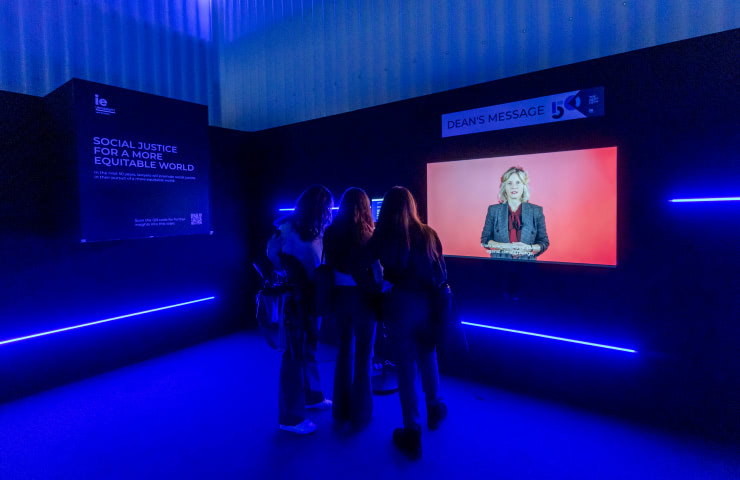
“Every one of you here is a miracle, so take advantage of that and do your work.” – Francis Ford Coppola
However, he believes that AI is also an opportunity waiting to be taken advantage of once we look past it as a threat. “Once we get our minds out of the mud that we were raised in and we start thinking about the cosmos, it’s very exciting what’s ahead of us.”
What the future holds for education
The event continued with a stimulating discussion on the future of education between Irene Blázquez-Navarro, Carlos Luca de Tena and Darío García de Viedma, director, executive director and associate director of the IE Center for the Governance of Change, respectively.
With AI changing the way we live, work and interact with each other, the talk tackled what the next 50 years will look like. Referring to a recently published report, for which the center surveyed more than 8,000 citizens of G20 countries, Carlos revealed that “a third of our fellow citizens believe that AI could take over.” He highlighted a pessimistic outlook on the future concerning wealth distribution and inequalities.
More positively, Darío underlined the importance of education and the humanities in solving the climate crisis. After all, IE University is one of the first universities to become carbon neutral, leading the way for other institutions. Bringing their discussion to a close, the panel stressed the importance of being participants rather than sole observers in our future.
The humanities at IE University
The event also played host to the official launch of IE University’s new school, the IE School of Humanities. A testament to IE University’s dedication to shaping well-rounded critical thinkers, IE School of Humanities promises to instill future leaders with the ability to make sense of the world’s complexity and drive better decision-making.
Manuel Muñiz, provost of IE University, took the opportunity to share his excitement for the first cohorts of the Bachelor in Humanities and Dual Degree in Business Administration & Humanities, which will begin in September 2024.
The humanities are what remains after change has passed. They are where we can find deeper meaning, and what is eternal in our nature. Let us celebrate them today. – Manuel Muñiz
Following Manuel Muñiz’s enlightening talk on the power of the humanities to shape the future, the event moved on to a discussion panel with Theodore Lechterman, assistant professor of philosophy at IE University, and Anne Lise Kjaer, futurist, author and speaker. The talk was moderated by Catalina Tejero, vice dean of IE School of Humanities.
Together, they covered topics such as how the humanities will impact us over the next 50 years. Sharing a common understanding of the importance of the humanities, the panel agreed that the humanities play a fundamental role in our future, especially regarding how we develop technology.
Bringing the event to a close, Santiago Íñiguez, president of IE University, gave some closing remarks to encourage attendees to think more deeply about the future of IE University and the role they will play in it. You can relive The Next 50 Grand Finale by exploring its official website.


